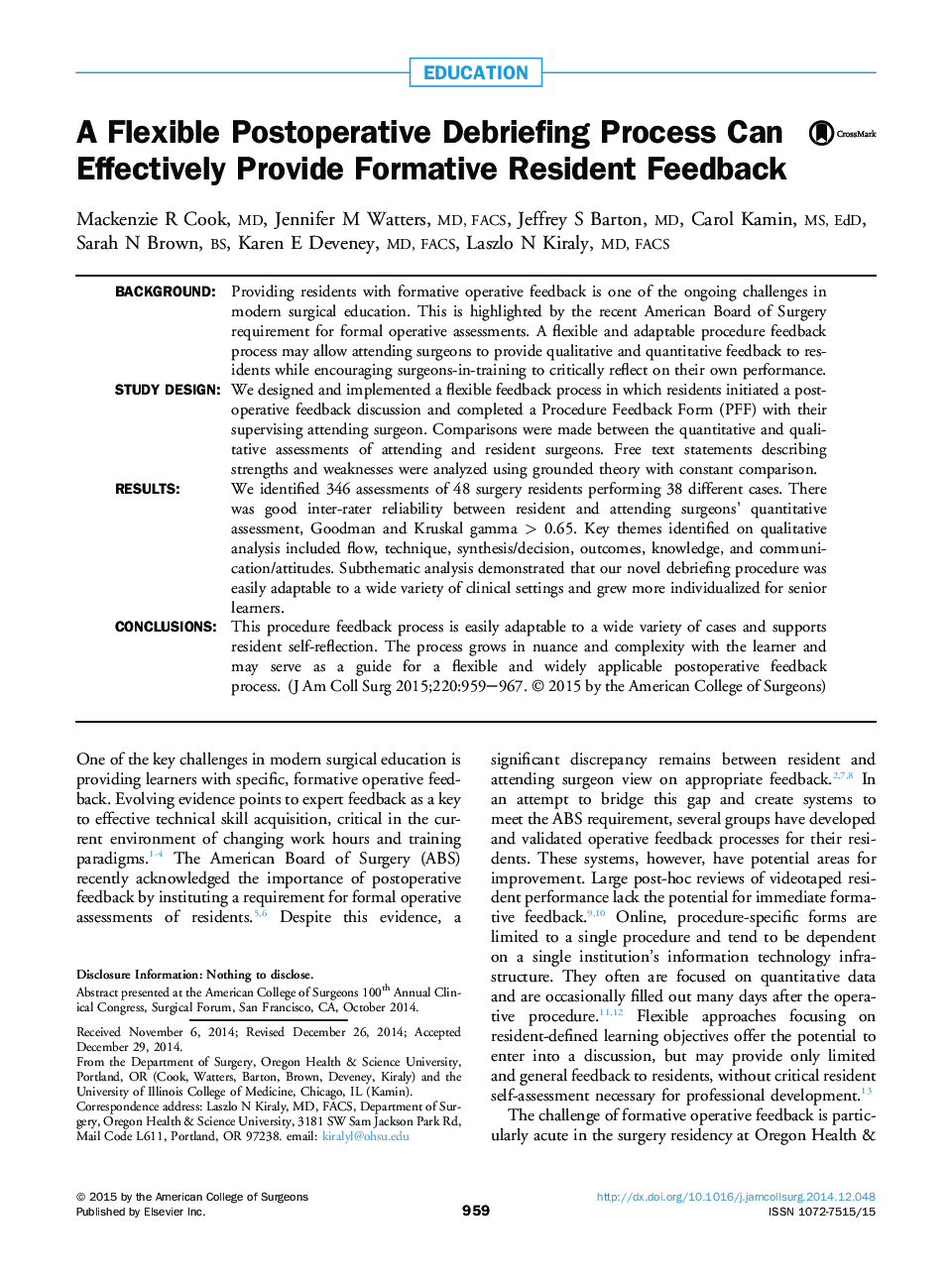| Article ID | Journal | Published Year | Pages | File Type |
|---|---|---|---|---|
| 4291275 | Journal of the American College of Surgeons | 2015 | 9 Pages |
BackgroundProviding residents with formative operative feedback is one of the ongoing challenges in modern surgical education. This is highlighted by the recent American Board of Surgery requirement for formal operative assessments. A flexible and adaptable procedure feedback process may allow attending surgeons to provide qualitative and quantitative feedback to residents while encouraging surgeons-in-training to critically reflect on their own performance.Study DesignWe designed and implemented a flexible feedback process in which residents initiated a postoperative feedback discussion and completed a Procedure Feedback Form (PFF) with their supervising attending surgeon. Comparisons were made between the quantitative and qualitative assessments of attending and resident surgeons. Free text statements describing strengths and weaknesses were analyzed using grounded theory with constant comparison.ResultsWe identified 346 assessments of 48 surgery residents performing 38 different cases. There was good inter-rater reliability between resident and attending surgeons' quantitative assessment, Goodman and Kruskal gamma > 0.65. Key themes identified on qualitative analysis included flow, technique, synthesis/decision, outcomes, knowledge, and communication/attitudes. Subthematic analysis demonstrated that our novel debriefing procedure was easily adaptable to a wide variety of clinical settings and grew more individualized for senior learners.ConclusionsThis procedure feedback process is easily adaptable to a wide variety of cases and supports resident self-reflection. The process grows in nuance and complexity with the learner and may serve as a guide for a flexible and widely applicable postoperative feedback process.
